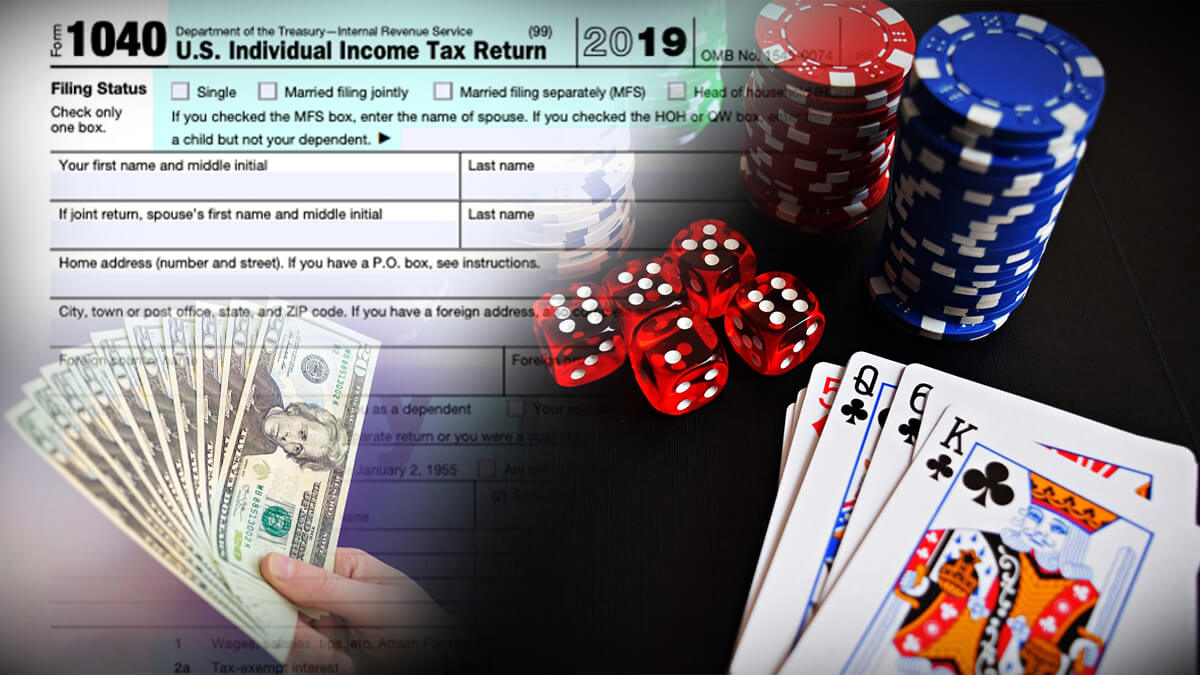Do You Have To Claim Gambling Winnings On Your Taxes
- Do You Have To Claim Gambling Winnings On Your Taxes Returns
- Do You Have To Claim Gambling Winnings On Your Taxes Paid
The IRS views winnings from gambling as taxable income, but did you know that you’re allowed to deduct gambling losses, too? While losing money at a casino or the racetrack does not by itself relieve your tax burden, it can reduce taxes owed for your other winnings, ultimately saving you money.
How to know if you can deduct your gambling losses
Gambling loss deductions save you money by reducing your taxable income. But there’s a trick to this—you can’t claim gambling losses that exceed your winnings, as losses are inextricably linked to your winnings for tax purposes. If you have no winnings to claim, you can’t deduct your losses.

So, if you list $1,000 in gambling winnings on your Schedule 1, the maximum that you could claim as losses on your Schedule A would be $1,000. If you had a bad year at the casino (as many of us do), the IRS does simply allow you to write off the loss as a deduction against your taxable base, unfortunately. Now, there are two rules that go along with claiming casino losses on your tax form. The first, and most important, is that you cannot claim losses in excess of your claimed winnings. So, if you list $1,000 in gambling winnings on your Schedule 1, the maximum that you could claim as losses on your Schedule A would be $1,000. Depending on how much you won during the year, you may receive a Form W-2G listing your gambling winnings. But even if you don’t receive the form, you’re still required to report all your winnings as “other income” on your tax return.
- Although you must list all your winnings on your tax return, you don't necessarily have to pay tax on the full amount. You are allowed to list your annual gambling losses as a miscellaneous itemized deduction on Schedule A of your tax return. If you lost as much as, or more than, you won during the year, your losses will offset your winnings.
- A payer is required to issue you a Form W-2G, Certain Gambling Winnings PDF if you receive certain gambling winnings or have any gambling winnings subject to federal income tax withholding.
As an example, let’s say that in a given year you went gambling twice, winning $6,000 in one instance, but losing $8,000 in another. In this case, you can only deduct $6,000 from that $8,000 loss. The remaining $2,000 in losses can’t be carried forward or written off. Conversely, if you won more than you lost, you’d owe taxes on the difference between your winnings and losses as “other income”—but at least those taxes would be reduced.
(If you’re a full-time, professional gambler the requirements are different: you will report your earnings like they have resulted from a business, as self-employed income).
Video: How to improve your credit score without a credit card (USA TODAY)


How to claim gambling losses
Deductible gambling losses can result from online casinos, poker games, sports betting, lotteries, prize draws, horse and dog racing, and even your office fantasy sports pool. To report any of these gambling losses, you’ll be required to itemize your deductions. This makes sense if the total of all your itemized deductions exceeds the standard deduction ($12,400 for taxpayers who are single or are filing separately from their spouse). If you claim the standard deduction, you don’t get the opportunity to reduce taxes for winnings owed by deducting gambling losses.
Keep in mind that you must be able to substantiate any losses you’re claiming, which means you’ll need to keep records of your gambling.
Track your winnings and losses
You can’t just say “I lost a bunch of money gambling” to the IRS. They require you to provide records of your winnings and losses to back your claim. Therefore, you should keep track of:
- the date and time of your gambling session
- the type of gambling
- the name and location of the gambling venue
- the people you gambled with
- how much you bet, won and lost
You should also keep credit cards statements, payout slips, receipts, tickets, bank withdrawal records, and statements of actual winnings. Other documentation can include:
- Form W-2G (typically given or mailed to you by casinos after a big payout)
- Form 5754 (a form for when you’re part of a group that earns money through gambling; you might see one of these if you and your co-workers are cashing in a winning lottery ticket)
Do you or someone you know need help with a gambling problem? Call the National Problem Gambling Helpline Network (1-800-522-4700).
Players dream of hitting a big jackpot when they play the slots. When that day comes for you, you'll have questions about the taxes you must pay on the winnings.
Hand Pay Jackpots
When you hit the winning combination of symbols for a large jackpot, your slot machine locks up. Depending on the machine, the lights on top of the machine may come on and start flashing, music may play or bells ring. A slot attendant arrives promptly to see what you have won.
On jackpots smaller than $5,000, an attendant verifies that you hit the jackpot and then assists you in claiming your money at the cashier's cage. In the case of a large or progressive jackpot, the casino may have technicians come and check the machine to certify that it was functioning properly when the jackpot hit. If you hit one of the wide-area progressive machines such as MegaBucks, the slot company that operates the game comes out and verifies that machine before giving you a check.
When you hit a jackpot, you have the option of taking your winnings in cash or check. Usually, large amounts are paid by check. In the case of the MegaBucks or similar multi-million dollar jackpots, you receive a check for the partial amount, and then you have 90 days to decide if you want to be paid a lump sum or an annual annuity on the balance. If you select the lump sum option, you receive only a percentage of your actual winnings. For example, the full winnings of one multi-million slot jackpot is paid in 25 annual installments, or you can take a lump sum of 60 percent of the winnings.
IRS Withholding
All casino winnings are subject to federal taxes. However, the IRS only requires the casinos to report wins over $1,200 on slots and video poker machines or other games such as keno, lottery or horse racing. When you have a win equal to or greater than $1200, you are issued a W-2G form. This form lists your name, address and Social Security number. The casinos are not required to take out withholding tax on jackpots under $5,000 as long you supply your Social Security number. If you don’t provide your Social Security number, the casinos withhold 28 percent on small jackpots.
You can request a specific amount of withholding tax to be taken out of any jackpot you win. Some players like to do this to avoid a big tax payment in April when they file their income tax returns. The additional withholding may not be necessary if you keep a log book. The law allows you to deduct gambling losses up to the amount of your winnings. You can only do this if you have documentation of your losses. Keeping a diary or log book is the way to do this.
Do You Have To Claim Gambling Winnings On Your Taxes Returns
Proper Identification
Casinos can refuse to pay you until you produce proper identification—a photo ID such as a driver’s license, military ID or passport.
If you don’t produce an ID, you are photographed and the casino holds your winnings until you come back with proper ID. For this reason, you should always carry a valid form of identification with you when you visit the casino.
When the casino checks your identification, it also checks your age to make sure you are legally old enough to play. The minimum age for gambling varies from state to state, but under-age gamblers are not be paid if they hit a jackpot. This is the law in all jurisdictions, and it has been upheld in court.
Plan Ahead
Do You Have To Claim Gambling Winnings On Your Taxes Paid
Before you start playing your favorite slot machine you should have a plan for the day you hit a jackpot. Players become excited when they hit the big one, and this may affect the decisions you make about your winnings. It is helpful if you know ahead of time how much withholding you want taken out or whether you want a check for all or some of the amount.